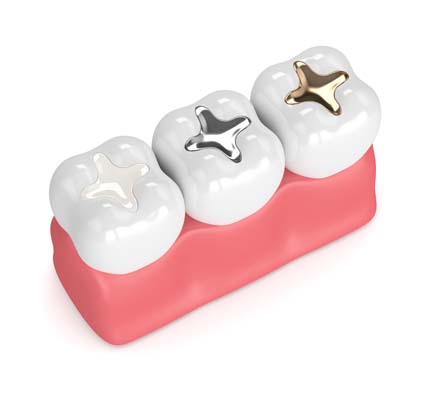Prevent Cavities With Dental Sealants for Kids

Children are highly susceptible to tooth decay or cavities. However, that does not mean they are bound to get a cavity. Opting for a dental sealant for kids can help prevent cavities by shielding the teeth from bacteria. This protection can last for years. If you are a parent concerned about your child’s dental problems, ask a pediatric dentist about dental sealants.
Understanding tooth decay (cavities)
Tooth decay is when the outermost layer of the tooth (enamel) deteriorates. Decay looks like tiny holes in the tooth, which is why they are also referred to as cavities. These holes result from plaque and tartar buildup, which allows acids and bacteria to eat away at the enamel.
While anyone can get a cavity, children are at a higher risk than adults. According to Johns Hopkins Medicine, this is because children tend to have poor oral hygiene and less access to fluoride than adults. They are also more likely to follow a carbohydrate-heavy and sugar-rich diet. Fortunately, a good oral hygiene routine, regular visits to the dentist, and preventive dental treatments can help reduce a child's risk for cavities.
Dental sealants help prevent cavities
As their name suggests, dental sealants are painted on the teeth to create a seal against bacteria and acids. Sealants are thin and do not change the appearance of the teeth. A pediatric dentist will apply the sealant on the chewing surface of the back teeth or the molars and premolars, as they are the most prone to cavities. Since the sealant provides a barrier between the food and each tooth, food particles will not be able to adhere to the teeth and develop into plaque.
A dental sealant for kids can last up to four years if cared for properly. Per the Centers for Disease Control and Prevention (CDC), sealants can protect a chewing surface from about 80% of cavities in the first two years after application. Protection wanes over time.
What does a dental sealant feel like?
The sealant may feel different than the rest of the teeth immediately after application. However, this sensation should fade within a few days. For the majority of the time, sealants will feel like natural chewing surfaces. Chances are that the child will forget they even have them.
Sealants vs. fluoride treatments
Dental sealants are not the same as fluoride treatments, although they have a similar purpose. Fluoride treatments remineralize the teeth, meaning they can strengthen them by restoring enamel. Fluoride is applied to the entire tooth surface, while dental sealants focus on protecting the grooves on chewing surfaces. Further, sealants are only available through the dentist. Fluoride can be found in drinking water, toothpaste, mouthwash, and other products present in most homes. Generally, pediatric dentists recommend fluoride and dental sealants to protect children's teeth.
Can sealants fill cavities?
While sealants are a great option for protecting against tooth decay, they cannot fill a cavity. Dental sealants are preventive, not restorative, treatments. If a child has a cavity, the pediatric dentist will restore the tooth using either a dental filling or a crown.
Aftercare for kids' dental sealants
Dental sealants are easy to care for, as they do not require changes to the child's oral hygiene routine. Daily brushing and flossing can help maintain the sealant's integrity. Mouthwash can also help. Avoid eating hard or sticky candy with the treated teeth; these foods could dislodge the sealant.
When dentists recommend dental sealants
A dentist may recommend a dental sealant for kids due to their tooth decay risk factors. However, not all children need this preventive treatment. For example, older children who are consistent with oral hygiene may find little benefit from sealants. Younger children or those who struggle to care for their teeth will benefit the most from the added protection.
Best age to get dental sealants
The CDC recommends that children get dental sealants after their premolars and molars erupt. Most children have their first molars erupt at about age six. Second molars tend to come in around age 12. However, there is no set age limit; even adults can benefit from sealants.
Need a dental sealant for kids?
Preventive treatments, such as dental sealants, are the best way to set up a child for a life of healthy teeth and gums. Sealants, in particular, are great at protecting molars and premolars from decay. Ask a pediatric dentist if your child could benefit from sealants. Call our Middletown office to book a consultation.
Request an appointment here: https://www.hvkidsmiles.com or call Hudson Valley Pediatric Dentistry at (845) 363-4177 for an appointment in our Middletown office.
Check out what others are saying about our dental services on Yelp: Dental Sealants in Middletown, NY.
Recent Posts
Dental sealants are an invaluable part of preventative dental treatment. Sealants can help ensure that the teeth grow strong and are free of serious dental issues for children. Is a dental sealant more effective for one age group, or does the treatment work equally well for patients of all ages? Read on to learn more…
Dental sealants are plastic coatings that protect teeth surfaces from decay. Since children are highly susceptible to cavities, pediatric dentists often recommend sealants to protect molars and premolars upon eruption. If you are considering this preventive treatment for your child, read on to learn more about the pros and cons of dental sealants.Tooth decay is…
Dental sealants safeguard the teeth against tooth decay by forming a barrier between bacterial plaque and the tooth enamel. The many tiny grooves on the surfaces of the back teeth may catch food particles. Since routine brushing cannot entirely remove them, they often stay there for an extended period. Cavities develop as a result of…
If a cavity develops and worsens, it could lead to the risk of a dental emergency due to an infection or severe discomfort. Dental sealants significantly reduce the risk of a dental emergency by helping to prevent cavities in vulnerable areas of teeth. Read on to learn how dental sealants can prevent a dental emergency…


